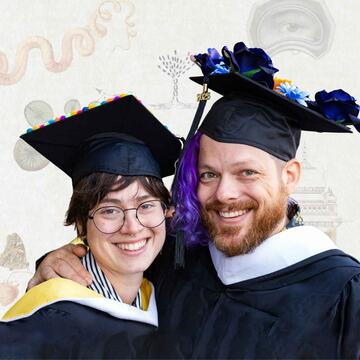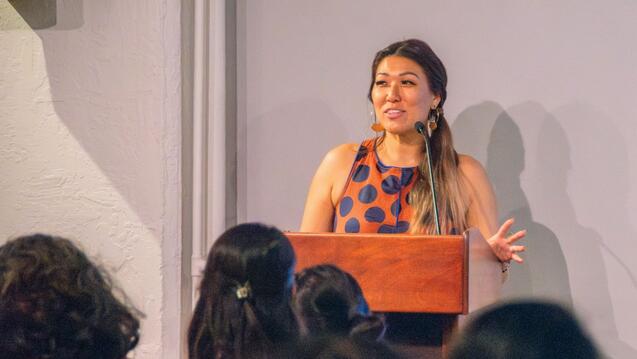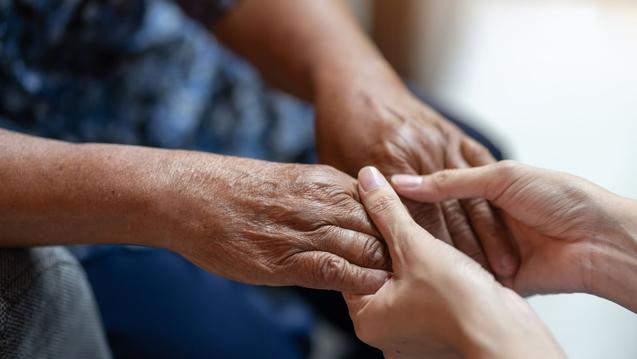Inside CIIS’ bold approach to community mental health and healing-centered education.

Creating Suicide Safer Communities
CIIS hosted a two-day workshop on Suicide Intervention Skills with aim of creating suicide safer communities in the Bay Area
Each year in the United States, 42,000 people commit suicide. Every day in America, 22 veterans of the U.S. Armed Services commit suicide. Each year, 5,100 of the suicides are teenagers and transition-aged youth (15-24). Studies show that those teenage suicides are 25% of the suicide attempts each year.
These numbers demand action. CIIS has responded and will continue to.
On October 17 and 18, Professor Steven Tierney of the University's Community Mental Health program conducted a two-day workshop at CIIS. Applied Suicide Intervention Skills Training (ASIST) is an evidence-based and effective skills development program. The co-trainer for this workshop was Kristin Dempsey, Senior Associate at the California Institute for Behavioral Health Services.
Twenty-three participants from across the region came to learn how to prevent suicide and how to effectively intervene with people at risk for suicide. The agencies represented included:
- A Step Forward (Concord, CA)
- City of Berkeley Health Department
- Conejo Valley Unified School District
- Contra Costa County Mental Health Department
- Huckelberry Youth Services
- Institute on Aging
- Miwok Indian Health Center, Placerville
- Oakland Unified School District
- RAMS (Richard Area Multi Services)
- San Francisco AIDS Foundation
- San Jose Unified School District
- San Mateo County Behavioral Health
- Santa Clara County Behavioral Health Services
- State of California Department of Rehabilitation
Tierney stresses that these skills are appropriate for, and geared toward, community members, and family and friends of people who might be at risk. "The risk," he says, "is present in all of our lives." Tierney became active in this movement and certified as a trainer because of research showing that while many people turn to therapy for support, most psychotherapists are unprepared to respond effectively.
"The capacities to attend deeply to suffering and to respond to suicidality with sensitivity and skill are essential competencies; not just for therapists, but for medical professionals, caseworkers, advocates, educators, and professionals across the human service spectrum, says Elizabeth Markle, Community Mental Health Program Chair.
A study by the American Psychological Association reveals that 71 percent of psychotherapists report having at least one client who has attempted suicide, while 28 percent report having had at least one client die by suicide*. A significant number of those therapists were trainees and interns.
"Everyone can help prevent a suicide," Tierney says. "Most people who considering suicide believe there are only two choices: death or life as it is for them today. Our work is to present and support a third choice, 'safe for now.' "
That third choice allows time for professionals, family, and friends to really hear the person's pain and work with the person at risk to create healing and health.
In the well-attended workshop, participants reported that their skills were enhanced and their confidence to respond successfully and safely was increased.
Polly Hommel, an MA student in Expressive Arts Therapy at CIIS, says that taking the "two-day training with caring, experienced instructors was a nourishing experience. In the workshop I felt safe, engaged, and stimulated by the information I was learning.
"I had the chance to observe, consider, and practice role plays about ways to connect with a person who is contemplating suicide. As a result of the workshop, I have increased confidence in my ability to reach out and help a suicidal person get safe for now."
Markle believes that "as leaders in this work, it is our mission and responsibility to generate understanding, deep compassion, and expertise in navigating this complex and challenging terrain of the human experience."
Additional trainings at CIIS will be planned based on community need and interest.
*American Psychological Association, Education Directorate, Lisa Firestone, Ph.D.
Related News
A graduate’s journey integrating Eastern contemplative wisdom with Western depth psychological frameworks.
Get access to the online workshop series on intergenerational trauma with Kini Chang, LMFT, Chair of the Community Mental Health program at CIIS



